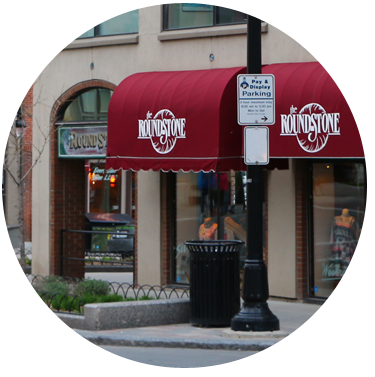
Pandemic helps change Kingston fashion boutique Fancy That’s mind about e-commerce
For Fancy That, a Kingston-based fashion boutique, e-commerce was looking like a hard “no.” Four years ago they set up a bit of a digital presence through social media, says Amanda Cronk of the family-run business.
It was to push in the world of Instagram and Facebook, “But at no point were we ever thinking that we would go online sales-wise,” says Cronk.
“We had thought about it years ago when it was starting to become a thing and pretty much immediately we're like, that's not really our thing.”
The focus has always been on the in-person experience for Fancy That and the two other family-run businesses – The Roundstone (also in Kingston) and Limestone & Ivy (run by Cronk’s uncle in Brockville) – under the umbrella. That was the differentiator in a world dominated by fast fashion, free shipping and online returns. And it’d worked for the last half-century the businesses have been around.
And then things changed. Abruptly. A shuttering forced by the pandemic and its silencing effect on foot traffic. Like every business on main streets across the country, Fancy That felt it right away. But they also picked up on a change in attitudes. “Even if people weren't open to the idea of looking online or digital marketing in any capacity then you're certainly looking at it now.”
Fancy That started their digital transformation in March with the launch of a Shopify website. Cronk had heard about Digital Main Street, a program that combines grants and one-to-one support from the Province of Ontario and the Ontario BIA Association to help main street businesses strengthen their online capabilities, and leveraged the resources to get the business’ e-commerce setup.
“We can't imagine not having done it, which is just so weird to think about because we would never have done it otherwise,” says Cronk. “It’s a bit of a silver lining because now we're realizing wow, we were off the mark a little bit… like maybe we should have been more open to this.”
In retrospect, Cronk says she suspects the biggest thing holding them back from going online was the fear it would somehow dilute that in-store experience. “In-person is so important to us.”
But the growing amount of people shopping online has given Fancy That and its sibling stores an opportunity to experiment with the medium and come up with ways to emulate that offline feeling, online. “There are some fun things we can do, maybe more video and things like that, that would keep that personality behind the store or that kind of connection,” says Cronk. But in the meantime, the focus is on service – responding quickly and keeping the platform open enough to pivot to customer needs. “We trying to give that attention that we would normally give in-store online with them so they’re still feeling like, okay, we’ve got you.”
Written by Andrew Seale
Digital Main Street a été créé par la Toronto Association of Business Improvement Areas (TABIA), avec la contribution directe de la Ville de Toronto. DMS est aussi appuyé par plusieurs partenaires d'affaires stratégiques comme Google, Mastercard, Shopify, Microsoft, Facebook, Intuit QuickBooks, Square, Pages Jaunes et Lightspeed.
This case study was completed during a prior expansion of DMS in partnership with the Province of Ontario and Ministry of Agriculture, Food and Rural Affairs.
In June 2020, a $42.5-million investment from FedDev Ontario and an additional $7.45 million from the Government of Ontario brought together the Toronto Association of Business Improvement Areas, Communitech, Invest Ottawa and the Ontario Business Improvement Area Association to expand the Digital Main Street Platform in order to support more businesses going digital as a response to the impacts of COVID-19.
